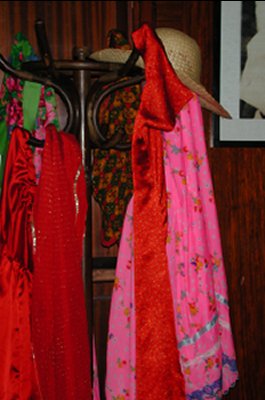| |

|

tziganes se bougent The Young Gypsy Activists in Eastern Europe
 | 'Today, the stereotypes on machism and the oppression of women in the culture of Gypsies have proven to be false. Indeed, among the new generation, most of the activists in favour of human rights among the Gypsies are women.' The director of the "Roma Participation Program ', whom we met in his office on the last floor of the Central European University, in Budapest, know these militants whith whom he works daily very well. This program took off in 1997. It was created following the observation that the fight for the rights of the Gypsies was monopolized by the non-Gypsies. The problem of the marginalization, (sometimes we may speak of oppression, or even harrassment) of this minority in Eastern Europe was defined by sociologists, "gadjo" ethnologists, and the funds to fight against this oppression were "colonized" (according to the expression used by the new generation of Gypsy militants) by NGO's composed of non-Gypsies. Some of these NGO's were even opportunistic, creating projects concerning the Gypsy problem with the purpose of receiving a part of the important funds raised for this sensitive issue. However, the Gypsy initiatives were not lacking. But the fund distributors had more trust in the actors already active in the fight for human rights; in general, these were NGOs directed by Westerners. We can nevertheless see here a certain contradiction between that behaviour and the present recurrence, in the discourse of fund distributors, of such themes as empowerment and the strengthening of civil society. In practice, creditors would rather invest their money in the hands of official and already reknowned actors rather than taking risks by supporting a true local initiative. The Roma Participation Program works opposite this tendency by financing integration and fundamental rights initiatives which are led exclusively by Gypsies. It even aims to allow the constitution of lasting organisms. In this way, it finances particular actions but also the costs for installation and management which allow the young Gypsy activists to create a structure for permanent action : local, fax, computer, electricity. Logistic support and managment advice are also offered. Finally, conferences and seminars are organized. For example, at this time are gathered in Budapest Gypsy militants and Afro-American activists, of which some carry experience from the seventies' Civil Rights movement, so that they may share their experiences and make their actions all the more efficient.
| This program is financed by the Soros Foundation. It allows, among other things, to prevent the segregation of the Gypsies in the schools of certain Romanian cities, and to help the victims of 'arrests' and collective rapes from Ukranian policemen to sue them in Court. Some fifteen NGOs directed by young Gypsies were created in this way in different countries of Eastern and Southern Europe, all working for a better integration of the Gypsy community.
(For more information on this subject, you can visit the websites of the Open Society Institute of Budapest (www.osi .hu), and of the European Roma Rights Center (http.errc.org).)
Untitled Document
|
|
|